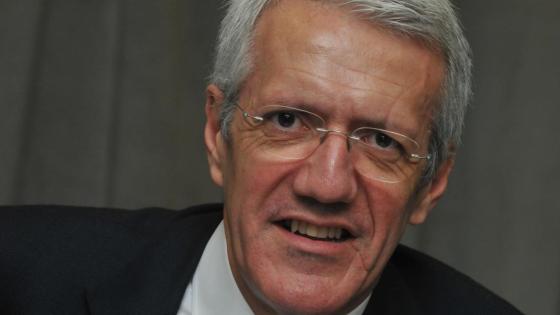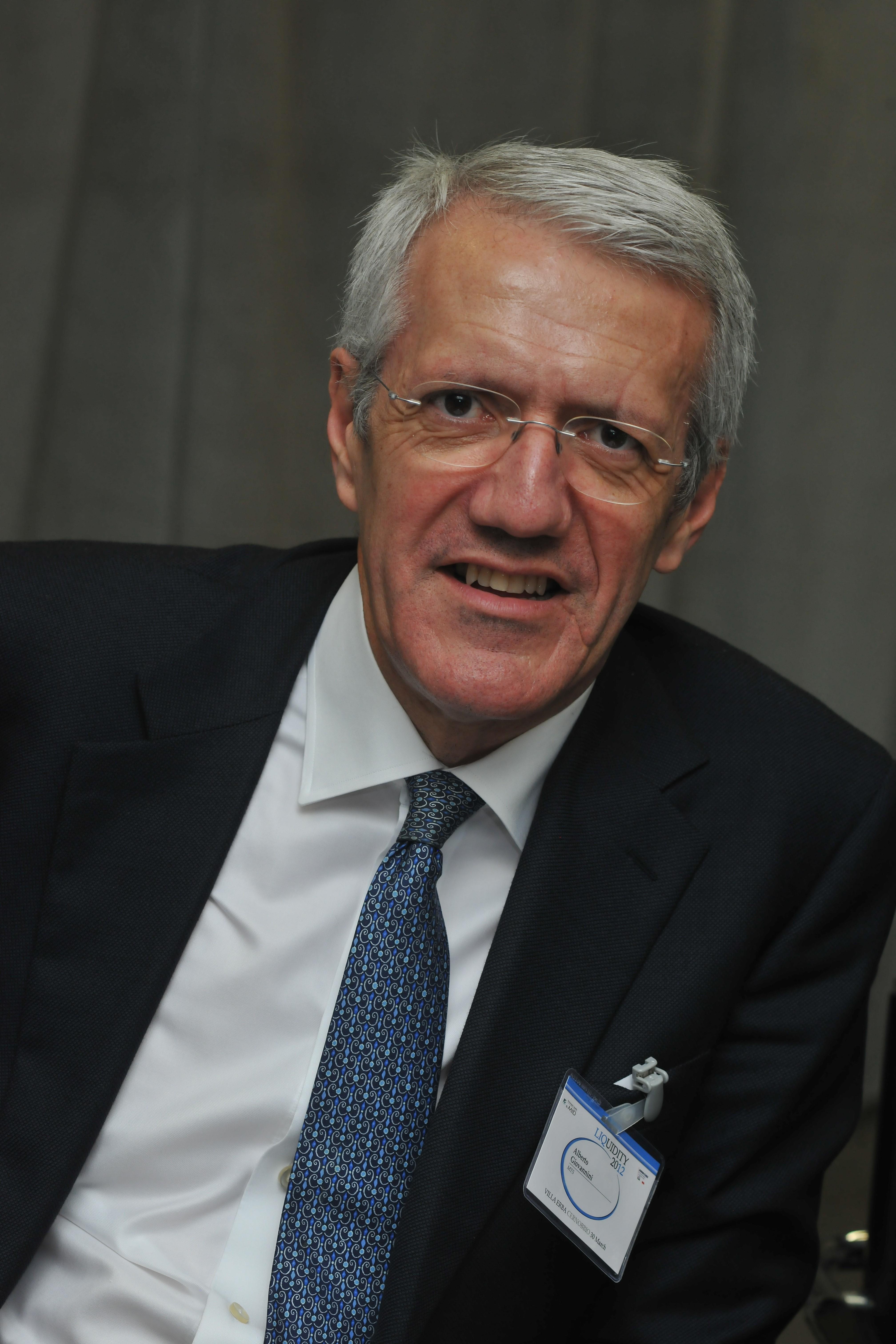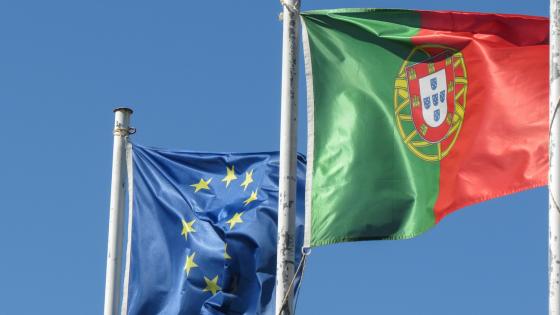Alberto Giovannini was one of the early CEPR Research Fellow appointments – and one of the best, both for his own qualities and for what he brought to economics in Europe. He produced 17 CEPR Discussion Papers, the first in 1986 (with one of us, Francesco), 15 more in the seven following years while he remained an academic, and the final one in 2010 (again with Francesco). The topics ranged widely in the domain of international macroeconomics: a sense of the whole is given by the title of the first, “Monetary policy interactions under managed exchange rates”. But Alberto was a financial economist as well as a macroeconomist: “The time variation of risk and return in the foreign exchange and stock markets” (CEPR DP 228) testifies to that. Capital mobility, fixed exchange rates, tax competition, currency substitution, international monetary regimes, and of course the European Monetary System and monetary union – all these were in his domain. One of us (Richard) learned more from Alberto than from anyone else about hegemonic stability in an international monetary regime.
He also contributed greatly to the CEPR reports series, in which both of us collaborated with him and others, starting in 1989, with the last one (on central banking after the crisis) appearing in 2009. He co-authored no fewer than six such reports. These more policy-oriented publications were often highly influential, especially those on
European Financial Integration and
The Monetary Future of Europe.
But to look only at his academic and policy-related output, impressive though it is, would greatly undervalue his contributions. Alberto had a deep understanding of and great enthusiasm for the mission of CEPR. He was a stalwart of the International Macroeconomics programme, indeed serving a period as a Programme Director. Stephen Yeo, CEPR’s long-serving Deputy Director and then CEO, and Romesh Vaitilingam, Programme Officer during Alberto’s early years with CEPR, both take great pleasure in their vivid recollections of working with Alberto on CEPR projects. He combined intellectual gravity with great energy and a positive outlook that he communicated to all.
And there are the anecdotes. Stephen Yeo visited Alberto in his office in the mid-1990s and recalls him, doubtless with his infectious grin, pointing out a cardboard box from a company called Amazon: “An amazing way to buy books – you order online and they send them to your office!” Indeed… Richard Portes recalls having to discuss at a conference a paper by Alberto on obstacles to cross-border payments in Europe – the ‘plumbing’ of the financial system. He was remarkably gracious in pointing out the shortcomings of the discussion. Richard had known nothing about the topic before reading the paper. Alberto knew everything. This came from his long service as Chair of what came to be known as the Giovannini Group on Cross-border Clearing and Settlement Arrangements in the EU, launched by the European Commission in 1996. The obstacles to freeing up and rationalising these arrangements were many and various, not least the inclination of national authorities to try to protect their own turf. Alberto negotiated these with characteristic cheer, occasional amusement, some frustration, but considerable effectiveness.
Richard also served with Alberto on the Advisory Scientific Committee of the European Systemic Risk Board, of which he was a member from its inception in 2011. Sam Langfield, an ESRB official, worked with Alberto on ASC projects. We recall his interest in personal technology, often showing up at meetings with one or another device that had caught his attention. It isn’t clear how many of these made the cut, but Alberto was always willing to try something new. Sam writes: “[At the outset, the Committee] focused much of its attention on crisis resolution and loss allocation. Alberto made a unique contribution to those discussions as the only member with substantial experience in both the private and public sector in addition to academia. He was truly a giant in all domains, benefiting the institutions with which he worked. As co-chair of an ESRB expert group on interconnectedness, Alberto was pivotal in securing access to high-quality derivatives data maintained by DTCC, of which he was a board member. Alberto [believed] strongly…that effective ‘systemic risk managers’ – his characteristic term for macroprudential regulators – should make full use of their superior information set. As he wrote in a [2016] ESRB report…’effective policy action requires robust informational and analytical support’.”
His contributions in this field were so influential because he thought about financial markets with a unique combination of sound theory and deep practical experience. There is abundance of both, but a scarcity of the two combined. The sentence he would often use, “Do not scratch the surface, dig deeper”, was a criticism of practitioners with a superficial knowledge of theory and of theorists with a superficial knowledge of how markets work. This is why he was unique.
His transition from academia to the policy world started in 1993, at the Italian Treasury, when Mario Draghi, at the time the senior Treasury civil servant, called him back from Columbia University to head the international debt office. It was just after Italy’s exit from the EMS, and the Italian Republic had been absent from international issuers’ markets for a few years. Alberto strongly argued Italy should return to the market, as this would send a signal of its determination to join the euro five years later. There was some understandable skepticism (‘What if we then devalue again?’), but Alberto won the argument. The international debt issue he launched was a big success, and Institutional Investor chose Alberto as the ‘International debt issuer of the year’. For the following fifteen years he was an active participant in financial markets, collecting successes and defeats, the only way to learn how markets really work. This is why he was so valuable throughout those years, when he kept thinking about and contributing to the design of the architecture and regulation of markets.
Anything he did during his too short life he did with passion, dedication and intelligence. One was always struck by his frankness. He took commitment and hard work for granted. But there was never any ostentation in how he presented his views or his achievements. Not even when he described his ascents along the walls of the Dolomites: the south wall of Tofana di Rozes along the Alverà-Pompanin route, 830 metres straight up from the valley, was his greatest achievement as a mountaineer.
Tall, burly, powerful, with a handshake and voice to match, Alberto was as imposing physically as intellectually. But eventually a strange illness defeated him. He bore it and the many trials it imposed on him with remarkable grace, courage, and optimism. His strength in so many dimensions is an example to all. It is impossible to measure our loss, both intellectual and personal, from Alberto’s death.
He is survived by his wife Patrizia, a distinguished art historian, and three children, all successful in life: Tommaso, a PhD in materials science; Federico, a physicist; and Camilla, a product manager in the technology industry.




